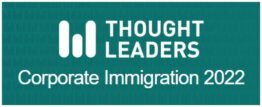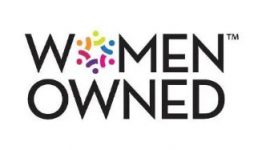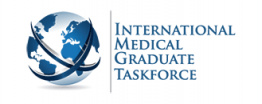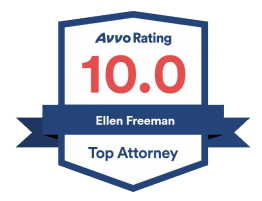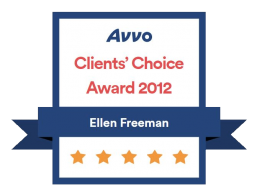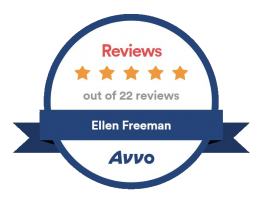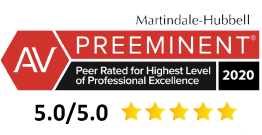
The Spotlight initiative of the WIP committee features a monthly Q&A session with a woman partner at K&L Gates. The November 2013 Spotlight subject is Ellen Freeman, a partner in the Pittsburgh office.
Q: Briefly describe the nature of your practice.
A: I practice in a very specialized area — corporate or employment-based immigration. I often describe my practice as “ensuring easy movement of people across borders” which, for our clients across the platform, is a critical part of doing business around the globe. It is a regulatory compliance area. Before joining K&L Gates, I focused exclusively on bringing people from other countries into the U.S., but for the past few years, have broadened my practice ensuring global mobility. I have developed many effective relationships with colleagues around the Firm, as well as local counsel around the globe. My area of practice is very competitive because it is federal law practice and sophisticated buyers of legal services know that they can bargain for flat or alternative fee arrangements for the immigration work. I have learned to treat my practice as a business and be very price competitive and efficient. Practicing immigration law could be challenging because the immigration attorney’s strategy and execution directly affects clients’ major life decisions related to global relocation, career advancement, and family planning. I am very proud to be in the business of bringing my clients closer to the American Dream and assuring life, liberty, and the pursuit of happiness for many people!
Q: What have been your most significant successes as a woman in the profession, and how did you achieve them?
A: The answer to this question is largely dependent on how you define success. When my mother was asked this question towards the end of her career, she answered, “my biggest successes are my daughters” which was a surprise to me because she was a consummate professional. Despite recent publications and media attention to high-profile working women debating whether we can “have it alll,” it seems we are still judged on our success as moms. I came to the U.S. in 1993 as a refugee from the former Soviet Union and as a single mother. My biggest success has been having two wonderful and successful daughters; earning J.D. and Master’s degrees in the U.S. after being here for a very short time and being completely unfamiliar with the system of government; being liked by clients; and becoming a partner at one of the world’s largest and most prestigious law firms. Balancing my family and career is a true success for me.
Q: What have been the most important ways you’ve been mentored in your career?
A: I was always determined to have a career. My great-grandmother was a dentist, my grandmother was a chemist, and my mother was a physicist, so I grew up with very strong female role models. My grandmother, who passed away last year at 93, was my confidante and cheerleader. It is not easy for young female attorneys to find mentors. Senior-level female attorneys are very busy managing their own practice and, for many, managing their families as well. Unfortunately, for male mentors, there may still exist some perception of inappropriate undertones, which may prevent them from reaching out and volunteering to mentor young female colleagues. I had to look for advice from mentors outside work and gathered information from wherever I could: organizational psychology books, Harvard Business Review, various legal publications. My membership in the American Immigration Lawyers Association (“AILA”) has been extremely beneficial to me. Due to the nature of our practice, immigration attorneys tend to be very friendly and supportive. Becoming involved in AILA has offered more diverse opportunities for growth and intellectual development outside of the traditional law firm trajectory. Fellow AILA members have been my mentors and biggest supporters. I also find that I learn a lot from clients who are business owners or corporate professionals. While I always look for mentors, I also recall the advice that “mentors find you.” When someone takes an interest in you, make yourself available.
Q: What have been the key elements to your success in building a book of business?
A: It was not until I was a mid-level associate that I began to fully understand the business of law and that building a book of business is a key to success. With that awareness, I was extremely determined to take hold of my career, but I realized that sometimes I had to fight for credit. In my early experiences prior to joining K&L Gates, I sometimes found myself up against partners who were claiming credit for the business that I brought.
I have been very responsive and very passionate about my clients’ cases. I take their cases very personally and advocate their needs very aggressively and expeditiously. I have been able to build a following of very loyal HR/corporate and individual clients who follow me and refer all of their friends, colleagues, and relatives. Immigration law is ever changing and could be intimidating. I was able to build @ personal brand focusing on the ability to explain the most complex details and immigration strategy in plain terms and executing it zealously and efficiently. Always be sure to focus on customer service. As a junior associate, you have to hone your legal skills, but you also have to learn sales and customer service skills and develop personal relationships with clients and contacts in order to build your personal brand and a referral network. I view my clients’ needs as a business partner and they truly appreciate it. Trade and professional organization memberships, non-profit organization involvement, and social media — especially LinkedIn — have been contributing resources. Now, when I attend industry or community events, people recognize me from my online presence. You need to be assertive and self-promoting — try to devote at least 30 minutes every day to practice development. It is a very competitive profession.
Q: If you could travel back in time to your first year associate self, what advice would you give yourself?
A: Look for a champion – a person who values and recognizes your talents and would advocate for you internally. Take a hold of your career, map it out, and try to stay on course rather than being controlled by circumstances. Build a strong support network. Be your own advocate.

